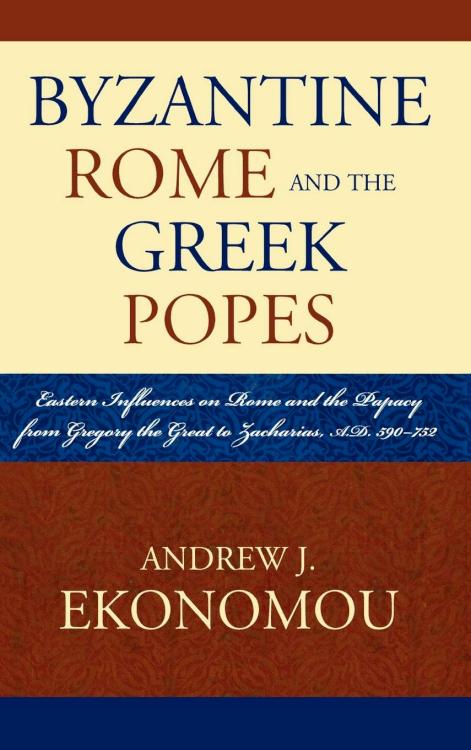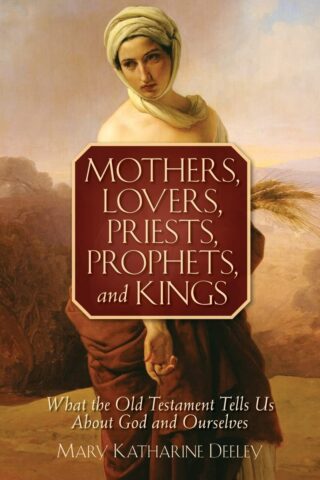Byzantine Rome And The Greek Popes
$57.99
Byzantine Rome and the Greek Popes examines the scope and extent to which the East influenced Rome and the Papacy following the Justinian Reconquest of Italy in the middle of the sixth century through the pontificate of Zacharias and the collapse of the exarchate of Ravenna in 752.
A combination of factors resulted in the arrival of significant numbers of easterners in Rome, and those immigrants had brought with them a number of eastern customs and practices previously unknown in the city. Greek influence became apparent in art, religious ceremonial and liturgics, sacred music, the rhetoric of doctrinal debate, the growth of eastern monastic communities, and charitable institutions, and the proliferation of the cults of eastern saints and ecclesiastical feast days and, in particular, devotion to the Theotokos or Mother of God. From the late seventh to the middle of the eighth century, eleven of the thirteen Roman pontiffs were the sons of families of eastern provenance.
While conceding that over the course of the seventh century Rome indeed experienced the impact of an important Greek element, some scholars of the period have insisted that the degree to which Rome and the Papacy were “orientalized” has been exaggerated, while others argue that the extent of their “byzantinization” has not been fully appreciated. The question has also been raised as to whether Rome’s oriental popes were responsible for sowing the seeds of separatism from Byzantium and laying the foundation for a future papal state, or whether they were loyal imperial subjects ever steadfast politically, although not always so in matters of the faith, to the reigning sovereign in Constantinople. Finally, there is the important issue of whether one could still speak of a single and undivided imperium Roman christianum in the seventh and early eighth centuries or whether the concept of imperial unity in the epoch following Gregory the Great was a quaint and fanciful fiction as East and West, ignoring and misunderstanding one another, began to go their separate ways. Byzantine Rome and the Greek Popes provides a guide through this complicated and often contradictory history.
in stock within 3-5 days of online purchase
SKU (ISBN): 9780739119785
ISBN10: 0739119788
Andrew Ekonomou
Binding: Trade Paper
Published: February 2007
Publisher: Rowman and Littlefield Publishing Group
Print On Demand Product
Related products
-
Dare To Be More
$6.99Add to cartUnofficially known as the patron saint of the internet, Blessed Carlo Acutis is a role model for today’s teens and adolescents. An ordinary teenager of the millennial generation, he enjoyed soccer, computers, and video games, but he was also committed to Mass, confession, and prayer. He used his computer savvy to spread devotion to the Eucharist and understanding of Church teachings. He was diagnosed with leukemia and was only 15 years old when he died. He was beatified by Pope Francis in Assisi on October 10, 2020.
-
Problem Of Pain
$16.99Add to cartFor centuries Christians have been tormented by one question above all — If God is good and all-powerful, why does he allow his creatures to suffer pain? C. S. Lewis sets out to disentangle this knotty issue but wisely adds that in the end no intellectual solution can dispense with the necessity for patience and courage.
-
Great Divorce
$17.99Add to cartC.S. Lewis takes us on a profound journey through both heaven and hell in this engaging allegorical tale. Using his extraordinary descriptive powers, Lewis introduces us to supernatural beings who will change the way we think about good and evil. In The Great Divorce C.S. Lewis again employs his formidable talent for fable and allegory. The writer, in a dream, finds himself in a bus which travels between Hell and Heaven. This is the starting point for an extraordinary meditation upon good and evil which takes issue with William Blake’s The Marriage of Heaven and Hell.
-
Mothers Lovers Priests Prophets And Kings
$14.99Add to cartMothers, Lovers, Priests, Prophets, and King provides a doorway to enter into the world of the Old Testament for both the casual and the more experienced reader. The newcomer to scripture will find an easily accessible group of stories about people who look and act just like the characters we know today and whose encounters with God leave us wondering what God has in store for us. The more experienced reader will come to know the God of the Old Testament more closely and see there the One who came to dwell with us as Jesus Christ. Both readers will take away from the book a deeper appreciation of the nature of scripture as a Living Word, a greater understanding of the connection between God in the Old Testament and God in the New, and a better awareness of the multifaceted nature of God’s interaction with us. This book helps readers begin to answer the questions: Who is the God we meet in scripture? Who is God for me now? How is God revealed in the patterns and experiences of my life?
Individuals and groups will find this book helpful in bible studies, small church groups, and as a way of sparking conversation about our images of God and what our relationship with God looks like. Readers will be able to place themselves in these stories and discover what God has to say to them. Those using the book for individual reading will be able to move from the scripture to the meditation to guiding questions and prayer designed to enhance their experience.
If you have been looking for a book that concisely, prayerfully and joyfully points to the beauty and truth of God through the stories of God’s people and then lets you discover for yourself the movement of God in your life, this book is for you.






Reviews
There are no reviews yet.